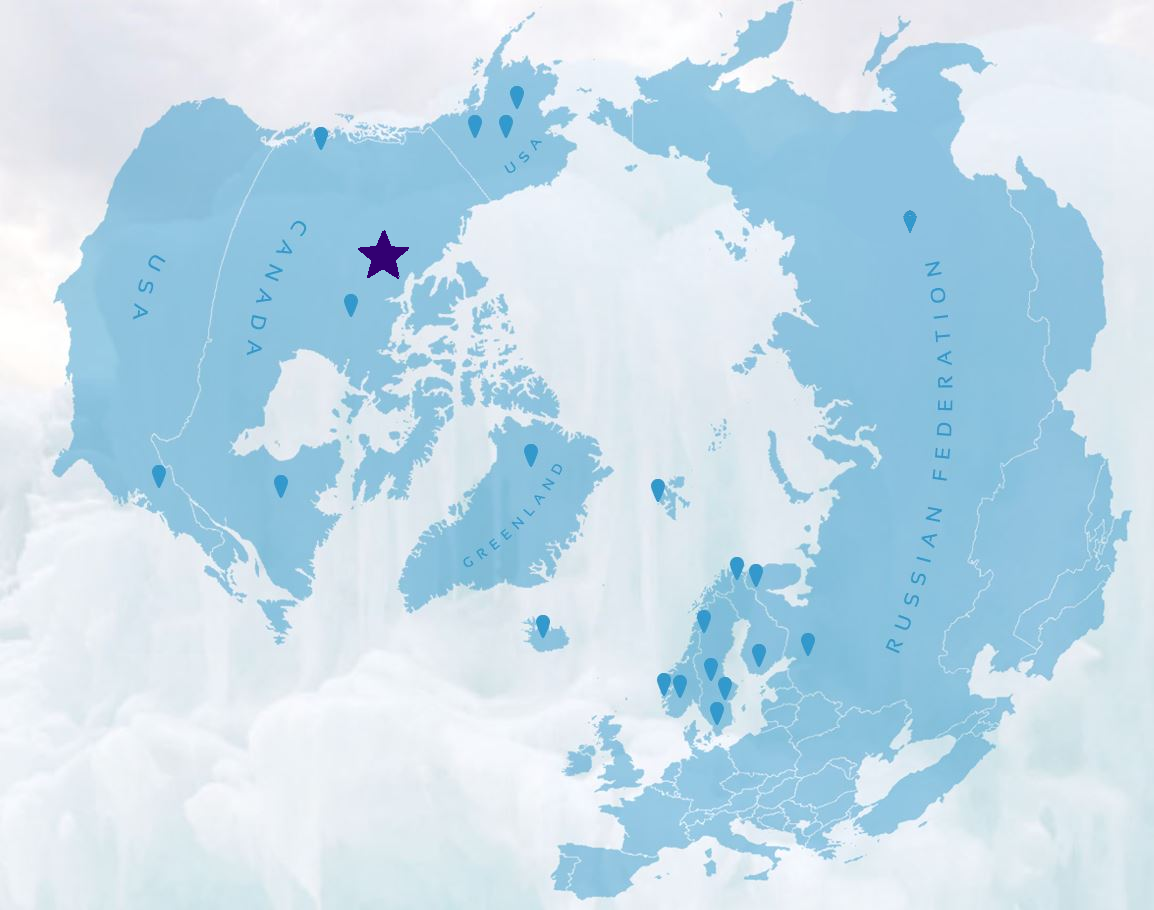History
In 1975, the International Hydrological Program (IHP) National Committees of Canada, Denmark/Greenland, Finland, Norway, Sweden, the United States of America, and the Union of Soviet Socialist Republics (USSR) established the IHP Working Group on Northern Research Basins, now called the “NRB Working Group” . In 1992, Iceland joined the group and Russia took over the responsibilities of the former USSR.
Objectives
The overall objective of the NRB Working Group is to encourage research in hydrological basins in cold regions where snow, ice and frozen ground have a dominant role in the hydrological cycle.
Over the years, the objectives of the NRB Working Group have evolved to include the following:
- Gain a better understanding of hydrological processes, particularly those in which snow, ice, and frozen ground have a major influence on the hydrological regime, and to determine the relative importance of each component of the water balance.
- Provide data for the development and testing of transposable models which may be applied to regional, national, and international water and land resource programmes.
- Relate hydrological processes to the chemical and biological evolution of northern basins.
- Assess and predict the effect of human activities on the hydrological regime in northern environments.
- Encourage the exchange of personnel (technicians, scientists, research officers, students, and others) among participating countries.
- Provide information for the improvement and standardisation of measurement techniques and network design in northern regions.
- Encourage exchange of information on a regular basis, and
- Set up task forces to promote research initiatives on topics of special interest to northern research basins.
Focus on Climate Warming
Since the NRB’s inception, climate warming has developed as a major scientific issue of direct importance to cold regions hydrology and water science throughout the circumpolar region. From the perspective of the Indigenous communities of cold regions, climate warming has introduced new and troubling uncertainties in regards to the future quantity and quality of water resources. In recent years there is a growing realization that climate warming adaptation strategies are most successful if the communities directly affected play a leading role in their development and application.
Previous Symposia/Workshops
Twenty-one productive symposia/workshops have been held to date:
- Edefors, Sweden (1975)
- Fairbanks, USA (1977)
- Québec City, Canada (1979)
- Ullensvang, Norway (1982)
- Vierumäki, Finland (1984); Houghton, USA (1986)
- Ilulissat, Greenland (1988)
- Abisco, Sweden (1990)
- Whitehorse-Dawson-Inuvik, Canada (1992)
- Spitsbergen, Norway (1994);
- Prudhoe Bay-Fairbanks, USA (1997)
- Reykjavik-Kirkjubærjarklaustur, Iceland (1999)
- Saariselkä-Murmansk, Finland/Russia (2001)
- Kangerlussuaq, Greenland/Denmark (2003)
- Luleå-Kvikkjokk, Sweden (2005):
- Karelia, Russia (2007)
- Eastern Arctic, Canada (2009)
- Bergen-Geiranger-Loen-Fjærland-Voss, Norway (2011)
- South-central Alaska, USA (2013)
- Kuusamo, Finland (2015)
- Yakutsk, Russia (2017).

